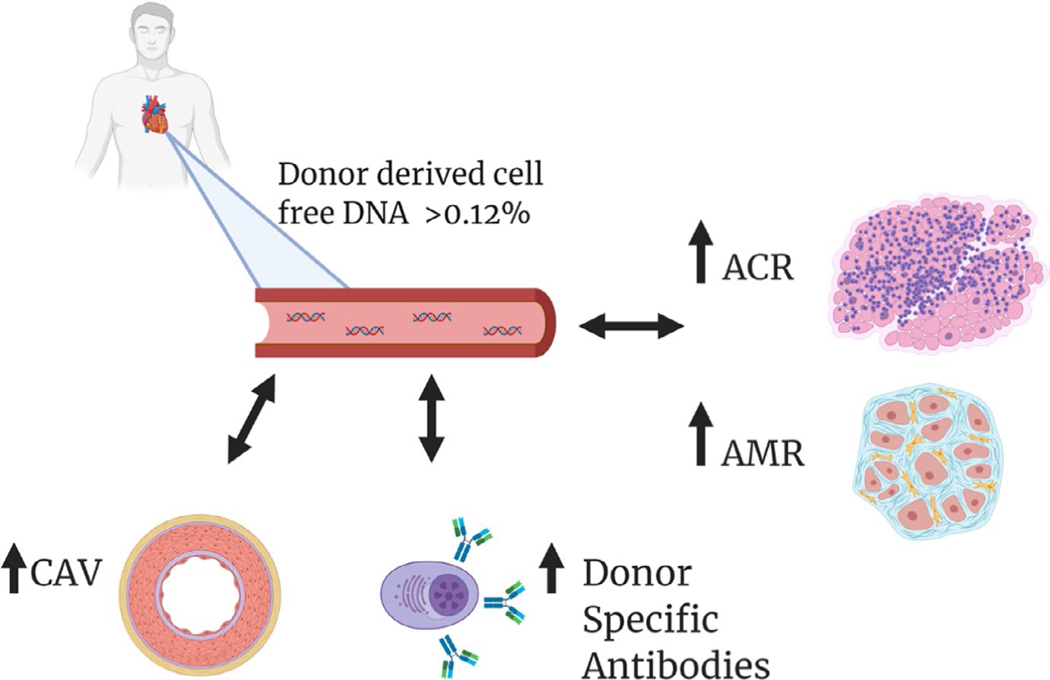FIGURE 4.
Central Figure, Elevated dd-cfDNA>0.12% is a marker of graft injury and can detect both ACR and AMR early post-transplant. These early elevations in dd-cfDNA have been implied as a potential risk factor for de-novo DSA, which are associated with development of CAV and adverse outcomes. We now show that de-novo DSA formation is indeed more common in long-term transplant recipients with elevated dd-cfDNA> 0.12% and importantly that these high levels of dd-cfDNA are associated with CAV. In these stable, long-term transplant recipients, dd-cfDNA might be elevated as a consequence of persistent endothelial injury even in the absence of graft dysfunction or active myocardial ischemia. Thus, dd-cfDNA possibly along with de-novo DSA formation could add to noninvasive screening and risk evaluation for CAV. DSA—Donor-specific Antibodies, ACR—Acute Cellular Rejection (ISHLT 1990), AMR—Antibody-mediated Rejection, CAV—Cardiac allograft vasculopathy, dd-cfDNA—Donor-derived Cell-free DNA

